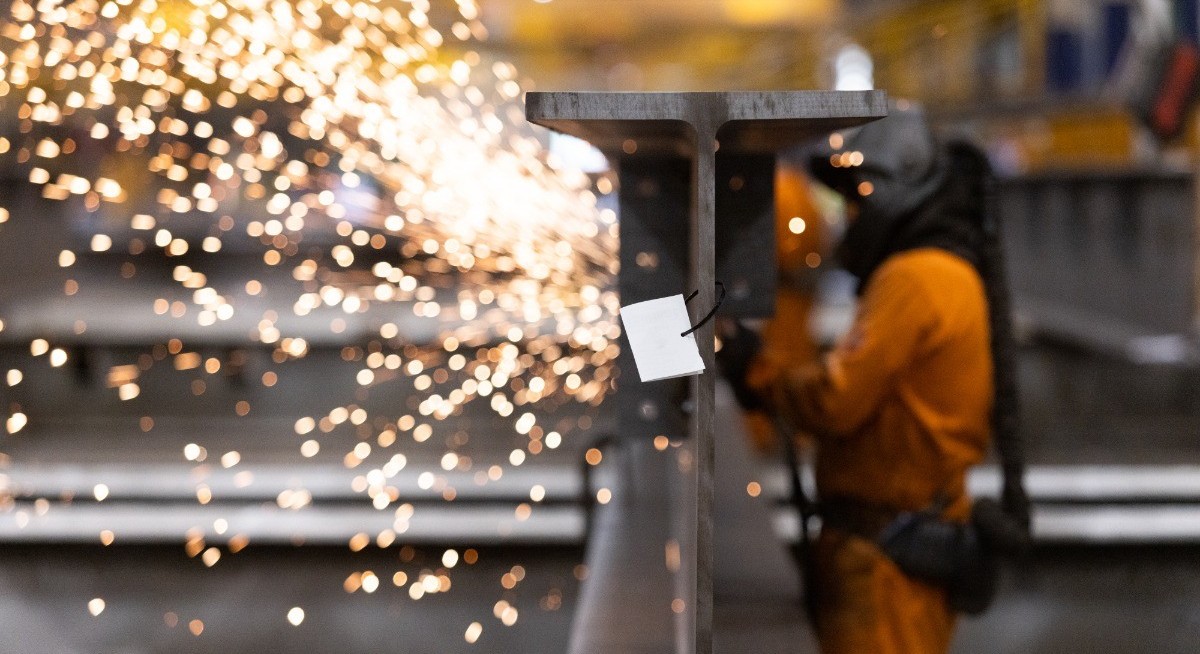The British government is also looking at how to accelerate the replacement of its own steel safeguards and tighten import quotas, said the people, who asked not to be identified speaking about policies that haven’t been publicly announced. Those existing measures are due to expire in June.
“This government has shown its commitment to the steel industry by securing preferential access to the US market for exporters, and we continue to explore stronger trade measures to protect our steel producers from unfair behaviour,” the UK government said in a statement, affirming its desire to addressing issues of overcapacity in the sector. “We are continuing our engagement with the EU following their recent announcement.”
While the people didn’t elaborate on what sort of retaliation the government was considering against Europe, any escalation would represent a shift by the UK side, which has so far sought to avoid being drawn into trade wars prompted by US President Donald Trump. It would raise fresh questions about Starmer’s effort to rebuild ties with Brussels in the wake of Britain’s exit from the EU almost six years ago.
Increasing European tariffs on British steel would violate the spirit of the reset agreement reached between the two sides in May, one UK government official said. The joint statement released by Starmer and European Commission president Ursula von der Leyen in London at the time affirmed their “mutual commitment to free, sustainable, fair and open trade” and safeguarding supply chains.
See also: Soy oil rallies as India agrees to cut duties on US supplies
European Commission spokesman Olof Gill said the “EU will engage with all its FTA partners in good faith, explain the measure and its implications, and discuss the way forward.” At the same time, Gill said the bloc would continue to emphasise the need for a collective solution to address global overcapacity.
Starmer is expected to cross paths with European leaders at the Group of 20 summit in South Africa later this week. The UK is also seeking a compromise to join Europe’s flagship defense fund after rejecting Brussels’ demands for as much as €6.75 billion to participate, Bloomberg reported last week.
The UK has been swept up in the European Commission’s efforts to protect its own steel industry from global overcapacity as it grapples with Trump’s global 50% steel tariff. That has raised the risk of a cheaper metals from China and other Asian economies flooding into the European market.
See also: No silver lining in meltdown
The EU currently has a temporary mechanism in place to safeguard its steel industry, which imposes a 25% duty on most imports once quotas are exhausted. That mechanism expires in June and the EU has been working to replace it with more permanent regulation.
The UK claimed earlier this year that its departure from the EU meant it could secure a better steel tariff rate from the US of 25% since it was no longer bound by the bloc’s trade policy. However, it also lost its protections from Europe and became vulnerable to changes in the bloc’s own steel safeguards.
An assessment by the UK government found that Europe’s new measures would have significant impact on the little remaining steel production in Britain, a pioneer of the industry in the 19th century. The EU is a critical market for the strategic sector, with more than three-quarters of UK finished steel exports going to the bloc last year.
The UK is also a large enough buyer of European steel to make the threat of retaliatory tariffs a significant concern for Brussels, according to one person familiar with the industry’s thinking.
“It is right that ministers look at all available options, including reforms to the UK’s own quota framework,” Tata Steel UK, one of the country’s largest producers of the metal, said in a statement. “Securing a fair deal with the EU is essential, but it will not be sufficient without meaningful changes in the domestic market. We are confident that a balanced solution can be found and look forward to the government setting out its position in due course.”
Uploaded by Felyx Teoh




